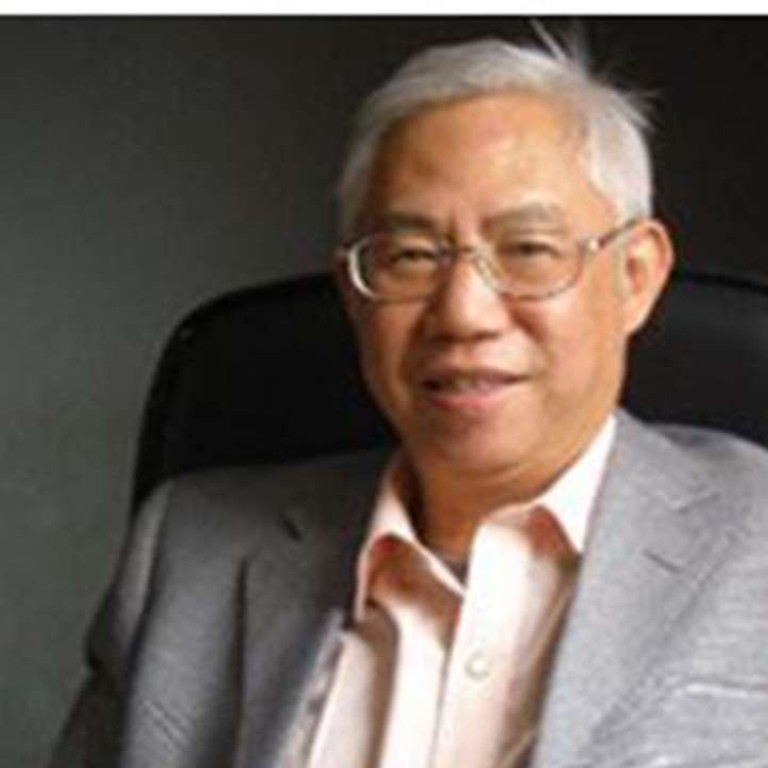
Chinese democracy veteran Hu Shigen jailed for subversion
Activist swept up in massive rights crackdown a year ago sentenced to 7½ years
Veteran pro-democracy activist and underground church leader Hu Shigen was sentenced to 7½ years in jail on Wednesday on charges of subverting state power.
The sentencing at the Tianjin No 2 Intermediate People’s Court took place on the second day of hearings against four human rights advocates, including Beijing-based Feng Rui Law Firm director Zhou Shifeng, who will stand trial on Thursday.
The defendants were among those detained in a sweeping crackdown on rights lawyers and activists in July last year. A day earlier, the court ordered rights campaigner Zhai Yanmin to serve a three-year jail term, suspended for four years.
Brothers of Chinese activist barred from trial and forced to return home
Hu, 61, pleaded guilty, saying he had taken the “criminal path” to promote Western-style democracy since the 1989 Tiananmen Square crackdown. He also confessed he was trying to overthrow the Communist Party and pledged to not take part in any anti-government or anti-party activities in the future.
Hu was accused of sending another activist, Gou Hongguo, to Taiwan to take part in the “Interethnic/Interfaith Leadership Conference” organised by US-based NGO Initiatives for China in 2014. He said he was invited by Yang Jianli, a US-based Chinese dissident and the NGO’s founder.
The conference was attended by “separatists from Xinjiang, Tibet and Inner Mongolia ... as well as other democracy activists” and they shared views about how to overthrow one-party rule on the mainland through non-violent resistance, the prosecution alleged, adding that this amounted to “colour revolution”.
Gou is due to appear in court in Tianjin this week. In written testimony about the conference, he said: “If there is any civil movement in mainland China, I could make use of what I learned to organise people to oppose the government.”
Citing Gou’s testimony, prosecutors said Hu used the underground church he led to promote Western constitutional democracy. “He was using the legal vessel of Christianity to do illegal things, to disseminate his subversive thoughts.”
Prosecutors also accused Hu of attending a dinner at a Beijing restaurant in February 2015, where he, lawyers Zhou and Li Heping, and others discussed how to overthrow the party through peaceful civil action.
In written testimony, Zhai said Hu told those at the dinner that they should aggravate divisions within the party to provoke party infighting. They should also incite public hatred of the party and cause bloodshed to draw the international community’s attention, Zhai quoted Hu as saying.
Hu was also accused of encouraging protests in Qingan county in Heilongjiang last year after police shot dead a man at a railway station, allegedly after he assaulted an officer.
Hu’s government-appointed lawyer said Hu’s speech at the restaurant to 15 others was spontaneous and did not go beyond their immediate circle. The lawyer pleaded for leniency because of Hu’s age and poor health.
But the court said Hu was well aware of the nature of the Taipei training, and had a long record of promoting a democratic transition for China.
Hu previously served part of a 20-year jail term for “organising and leading a counter-revolutionary group”, “counter-revolutionary propaganda and incitement” and for distributing leaflets about the Tiananmen crackdown.
He was released in 2008 after his jail term was reduced by four years.
“I have determined not to participate in any activities that are against the government and the party,” Hu said in a final statement at the hearing.
Four Hong Kong-based media outlets and one from Taiwan were given access to the court hearing.


